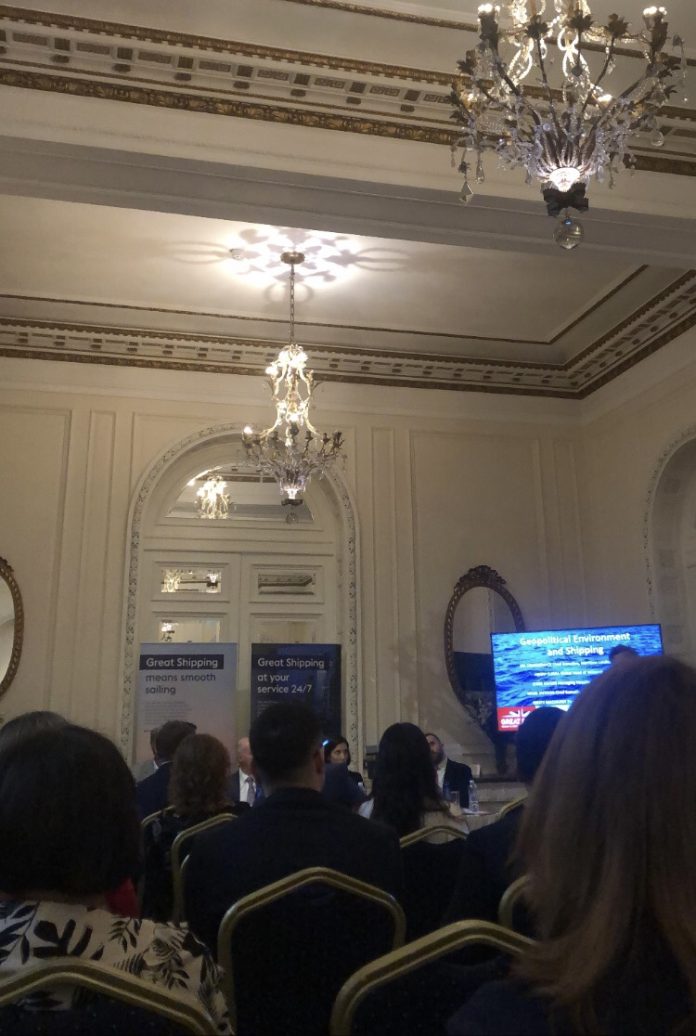The clear message of the “Trade and Shipping in a Disrupted World” seminar, which was organised by Maritime London and supported by the UK Department for International Trade, is that time for the recovery of the shipping industry has come.
The pandemic, the war and the rise in fuel prices are all challenges that the sector now faces, and at the same time, other incidents, such as Ever Given grounding in the Suez Canal, have shown how fragile the supply chain sector is.
The cooperation of the whole shipping stakeholders is necessary for a cleaner and sustainable industry, according to the seminar’s speakers.
In particular, speakers said the Environmental, Social, and Governance (ESG) is an important element for shipping and finance, while they highlighted the need for investments.
In the seminar, which was held in the context of the Posidonia 2022 exhibition, two different panels were held.
The first one, “Trends in Ship Finance”, was addressed by Harry Theochari, chairman of Maritime London, Haralambos Fafalios, chairman of the Greek Shipping Cooperation Committee, Robartus Krol, director, sector coverage – shipping at ING Bank and George Xiradakis, founder of XRTC Business Consultants Ltd.
The panel explored how ship finance markets have evolved over the past 24 months, what mix of capital provision exists in the market, whether enhanced ESG reporting affects investment decisions and how the changing trends in ship finance will alter the structure of the ship owning entities and the wider shipping industry.
The huge lack of funding was underlined by the panelists. However, it seems that there is still a lot of capital from the traditional banks, which support the shipping sector.
It was also mentioned that the banks are changing, and with them, the shipping industry should also change.
Regarding the way the banks would react to the challenge of “green” shipping, the panelists could not give a straight answer. In fact, the speakers said that the challenge of the “best solution” is one that even the shipping industry itself does not know the answer to, so far.
The panelists noted that none of the existing solutions for decarbonisation are really ecological, as they still need carbon. Even the use of biofuels is not a totally sustainable solution, as it could lead to the destruction of forests, according to the speakers.
Overall, the panelists highlighted that there is a “desperate need” for answers and solutions, both real and long-term, on the issue of decarbonisation.
The second panel discussed geopolitical environment and shipping issues. The discussion was moderated by Jos Standerwick, chief executive of Maritime London, while speakers were Chris Adams, managing director of Steamship Mutual, Mark Jackson, CEO of Baltic Exchange and Kirsty MacHardy, partner of Stephenson Harwood LLP.
The Russia – Ukraine conflict represents the most significant change to the global liberal trading regime of recent history, according to the panel, which noted that trade disruption, sanctions and the ensuing commercial uncertainties, crewing issues, supply driven inflationary pressures and the consequential looming recession are all disrupting the global shipping industry.
The speakers explored how the market is navigating the consequences that the conflict has caused in the shipping industry and what this may mean for the future of the industry.







